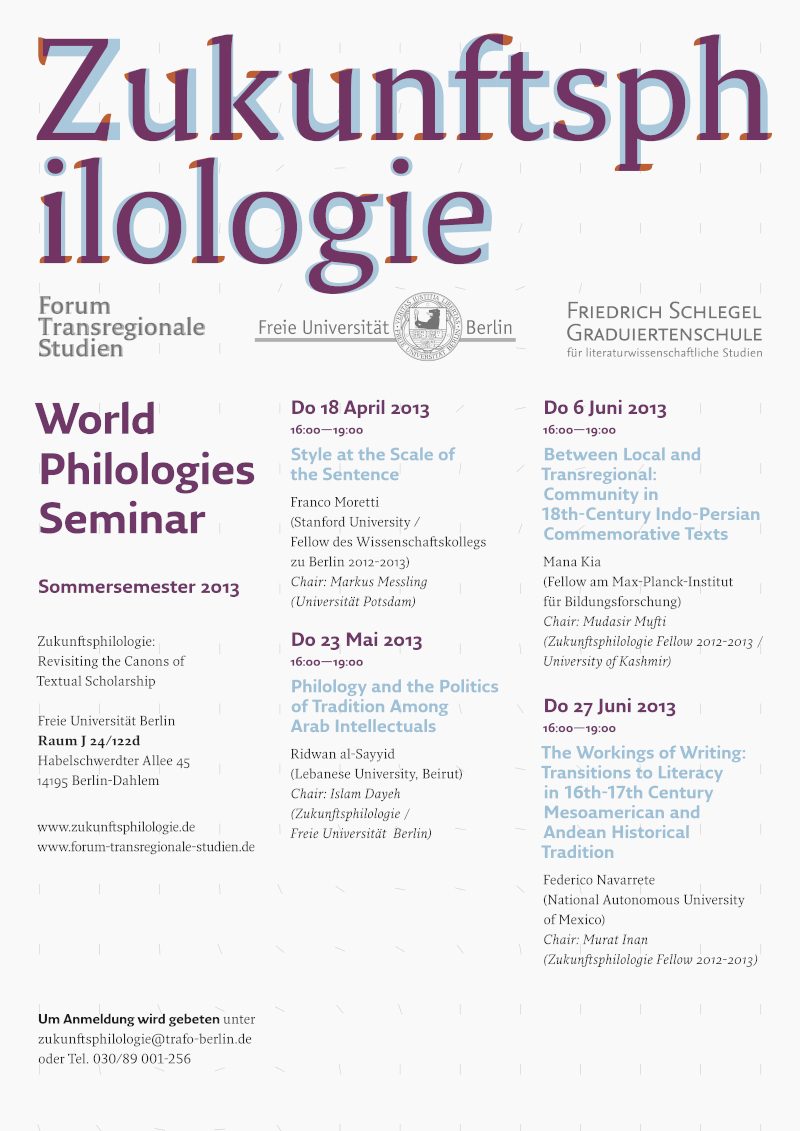After they were conquered by the Spaniards in the first half of the 16th century, the Amerindian inhabitants of Mesoamerica (South Mexico and Central America) and the Andes (Ecuador, Peru and Bolivia) were confronted with the literary traditions of the Western worlds and their conceptions of history and temporality. Various authors in those regions made efforts and experiments to adapt their own historical traditions, and their own ways of conceiving the flow of times, to the new, hegemonic Spanish model. In this presentation I shall compare two vastly different examples from the early 17th century, one written in Nahuatl, the other in Quechua. In Mesoamerica, Chimalpain, a prolific annalist created an ambitious history that sought to integrate the peoples of Central Mexico into the universal history of salvation. In the Andes, the anonymous author of the so-called Relación de Huarochiri produced a decidedly local historical narration that sought to construct an indigenous past that would be comparable to the historical pasts written by the Spaniards.
The Workings of Writing: Transitions to Literacy in 16th-17th Century Mesoamerican and Andean Historical Traditions
Federico Navarrete (National Autonomous University of Mexico); Chair: Murat Inan (Zukunftsphilologie Fellow 2012-2013)
Freie Universität Berlin, Raum J24/122d, Habelschwerdter Allee 45, 14195 Berlin

After examining the contrasting political situations that surrounded the creation of these two works, I shall analyze the native political and cultural projects that informed each of them, and the different receptions they encountered among Spanish audiences in the markedly different political contexts of the viceroyalties of New Spain and Peru.
The general aim of this discussion will be to show that the highly complex and experimental interactions between Amerindian and Western historical and literary traditions in the early Modern world cannot be encapsulated in the concept of a clear-cut transition from orality to literacy or from myth to history.
In the following seminar we shall analyze the role played by writing itself in key passages of these works, using the current English translations of some of the works of Chimalpain and the Relación de Huarochirí:
• Chimalpahin: Annals of his Time, (ed. and trans. by James Lockhart, Susan Schroeder, and Doris Namala), Stanford, Stanford University Press, 2005
• The Huarochirí Manuscript. A Testament of Ancient and Colonial Andean Religion (ed. and trans. by Frank Salomon and George L. Urioste), Austin, University of Texas Press, 1991
>> Seminar texts
Federico Navarrete studied History and Anthropology (MSc in Social Anthropology at the LSE) and holds a PhD in Mesoamerican Studies from the Universidad Nacional Autónoma de México (2000). For more than two decades he has translated and studied the many written and pictographical histories produced by Nahuatl-speaking indigenous authors from Central Mexico in the 16th and 17th centuries and has compared them with similar Maya and Quechua historical documents. He has published books and articles on the historical narratives contained in these documents, their chronotopes and the way they defined and preserved particular conceptions of historicity and temporality.
He has also done research on the complex processes of interaction brought about by spanish colonization of these peoples and the later conformation of the modern American nation-states, paying particular attention to the ways in which the Amerindian peoples reinvented their cultures and redefined their ethnic identities.
Moreover, he has written historical fiction about the history of the indigenous peoples of Mexico and the America, some of which has been translated into English and Italian.

